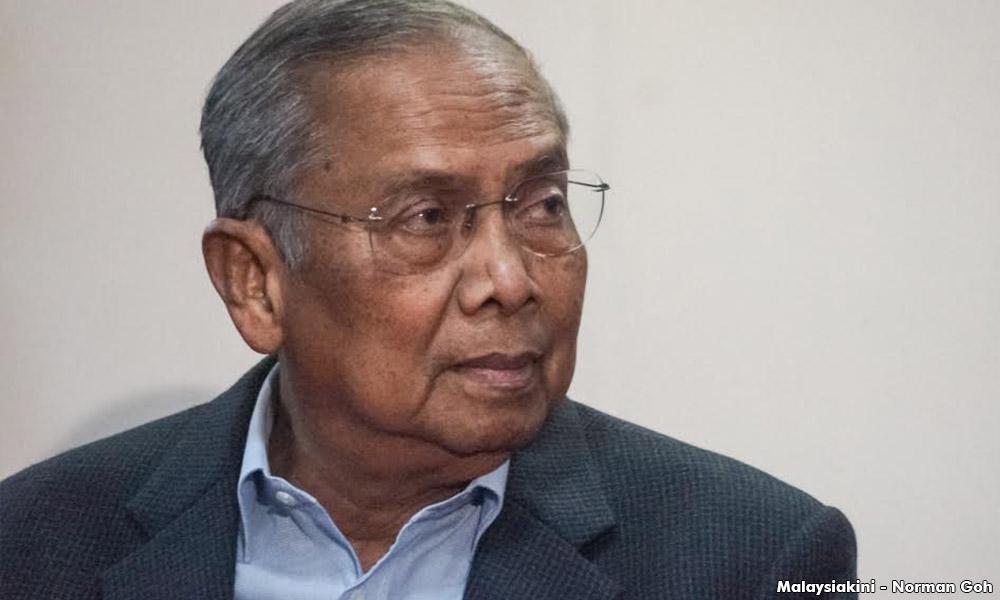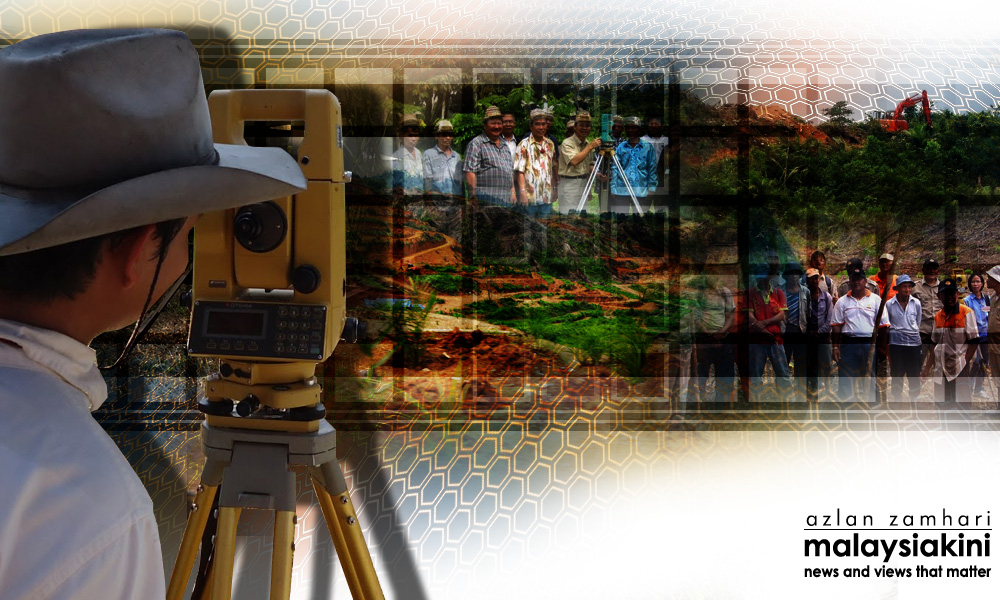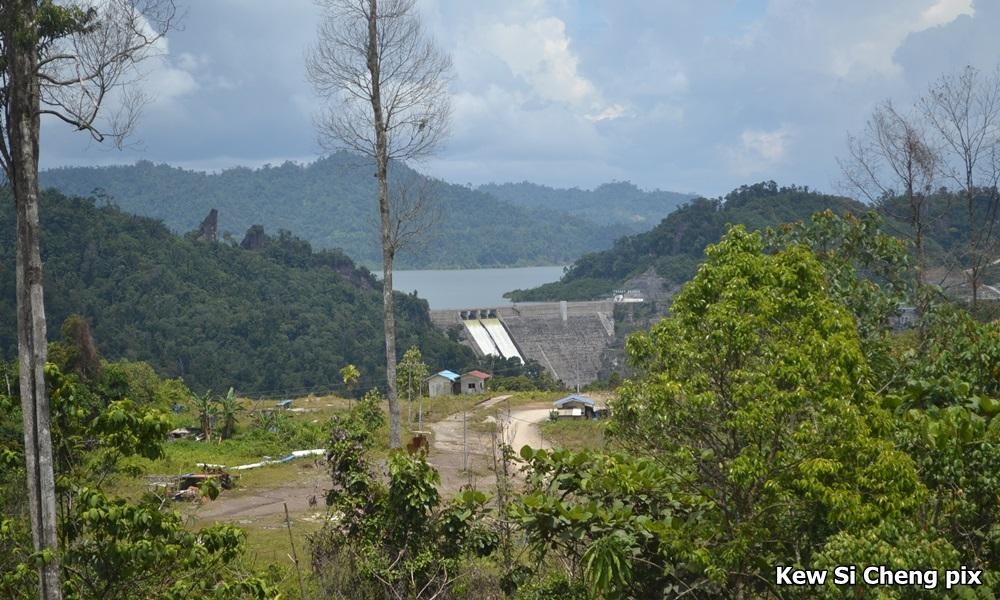COMMENT | The Cameron Highlands by-election has exposed the hypocrisy of both the BN and Pakatan Harapan coalitions toward our indigenous peoples. Interesting coincidence that the Orang Asli make up some 21 percent of the 32,000 voters in the constituency, and simultaneously we have suddenly witnessed Putrajaya suing the Kelantan state government for violating the land rights of the Temiar Orang Asli community in Gua Musang.
While this is a step in the right direction, will Putrajaya likewise sue the Sarawak state government for its decades-long violation of land rights, including the forced resettlement of the many indigenous peoples there?
After all these years, suddenly Harapan leaders have realised the lack of infrastructure, access roads, clean water supplies, electricity, as well as education, health and medical care for the Orang Asli! They have further “mooted the idea of an Orang Asli blueprint if Harapan wins the Cameron Highlands byelection”. Will there be no such Orang Asli blueprint if Pakatan loses the by-election?
If Harapan is so concerned about the indigenous peoples and social justice, it should set up a ministry specially concerned with uplifting the livelihood of all the indigenous people in Malaysia instead of having a Federal Territories Ministry when cities such as Kuala Lumpur should ideally be run by elected mayors as in other cities in the world.
Malaysia is home to a wide diversity of indigenous peoples and all of them face a variety of challenges. Their plight has often been highlighted by tragic events through the years – landslides, floods, neglect and racial discrimination. The worst example of discrimination is shown by the admission of Harapan leaders that they have just realised the desperate plight of the Orang Asli at Cameron Highlands.
Do they know of the plight of the more than 10,000 indigenous peoples from 15 different ethnic communities who were forcibly displaced tothe Sungai Asap Resettlement Scheme for the Bakun Dam in 1998? Yes, in the 20 years since these indigenous peoples of Sarawak were displaced by the Mahathir-Taib Mahmud administrations, Mahathir has not paid a visit to Sungai Asap to see the living conditions of the displaced indigenous peoples there. I went there with a fact-finding mission in 1998 (six months after the peoples were moved there) and it was already a depressing ghetto, the people's morale and dignity destroyed.
Perhaps the Harapan leaders who have suddenly become “conscientised” about the plight of the Orang Asli should prod the prime minister to lead a delegation to the Sungai Asap Resettlement Scheme to see what the prestigious Bakun dam project has done to the livelihood of these indigenous peoples from the Bakun area these 20 years.

In Sarawak, the construction of the Baram hydroelectric dam in Baram, Miri, has been put on hold by the Sarawak government in the run-up to the Sarawak state elections. The reason given by the late chief minister, Adenan Satem (photo), was that the people in Baram do not want the project.
Nevertheless, the cessation of the construction work at this juncture does not necessarily mean an end to the Baram dam project as the project has been temporarily “put on hold” in the past.
Indigenous peoples who protested against the construction of the Baram dam did so after learning the devastating stories of neglect from those communities displaced by the Batang Ai, Bakun and Murum dams (in 1985, 1998 and 2013 respectively).
Sadly, in 2017 communities relocated by the Bakun and Murum dams continued to raise concerns regarding their fundamental economic, social and cultural rights such as treated water, electricity supply, fertile farming land and access to decent roads and schools.
Apart from these notable cases that were widely publicised by the media, there have been countless other violations of human rights inflicted on the indigenous peoples of Malaysia. Some of these violations relate to the ineffective use of funds by relevant ministries that led to poor growth and development, poor water quality that led to poisoning and in other cases, land tussles between the community and corporations supported by the government.
The disastrous floods that plagued Malaysia late 2014 and early 2015 further exacerbated the human rights violations suffered by the indigenous communities, especially concerning their economic, social and cultural rights.

Violations of the rights of indigenous peoples remain a major concern, particularly as indigenous communities continue to lose their native customary rights (NCR) land as a result of landmark decisions at the Federal Court. Outside of court, indigenous peoples have to defend aggressive land encroachment predominantly by plantation companies and face threats, including violence from gangsters employed by the companies to harass the indigenous communities.
Indigenous peoples also voice concerns over their freedom to access information, including lack of government transparency over the availability of the Terms of Reference (TOR) for Social and Environmental Impact Assessments (SEIA) for development projects in the state, which consequently hinder their participation in more meaningful consultation on state land policies.
On top of that, the state continues to interfere in indigenous peoples’ right to self-governance through the government's selection and appointment of indigenous community leaders, who do not necessarily represent the interests of the communities.
On April 4, 2017, a statement released by Suhakam highlighted “the slow progress in the undertaking of actions by the Cabinet Committee [set up by the government in 2015, for the Land Rights of Indigenous Peoples] which has resulted in continuous human rights violations of the indigenous peoples, especially the encroachment into their native land by developers.”
And on April 30, 2017, Suhakam called for a moratorium or a temporary prohibition order to be placed on all developments involving indigenous peoples’ lands, pending the implementation of the recommendations of the 2013 ‘National Inquiry into the Land Rights of Indigenous Peoples’.
An official visit by the United Nations special rapporteur on cultural rights, Karima Bennoune in September 2017 unearthed further details of the human rights situation of indigenous peoples in Malaysia, including NCR issues faced by native communities in Sarawak. Particularly revealing was acknowledgement from the federal government's newly empowered ‘Integrity, Governance and Human Rights Department’ that “land rights of indigenous peoples remain an unresolved human rights issue and a gap in the law which it will be studying.”
Protecting our forests
On Nov 15, 2017, Penan leaders from Baram and Limbang presented maps of their ancestral lands totalling 10,000 sq km of land to the state government in their struggle to protect their last remaining forests from logging activities. A total of 23 maps, which took 15 years to complete, covered land purported to belong to 63 communities and was presented to Deputy Chief Minister Douglas Uggah Embas in the hope that the land could be protected from encroachment and officially recognised as the ‘Baram Heritage Forest’.

Formerly known as the ‘Penan Peace Park’, the ‘Baram Heritage Forest’ is an area of forest that the Penan hope to see protected as a rainforest park and managed by the local indigenous communities with the support of the state government.
Penans from the upper reaches of the Baram river had also penned a letter to Adenan in 2016, calling for a moratorium on logging and plantations on their NCR land at particular risk from notorious logging giant Samling. The Penan communities in Sarawak are still hoping for a moratorium on Samling's logging activities. The Samling Group originates from Sarawak and has been aggressively operating in the Upper Baram region against the consent of Penan communities for decades.
On Nov 27, 2017, hundreds of Iban villagers from Bulin Saeh in Niah held a peaceful protest over alleged encroachment of their NCR land by a palm oil company and requested the government recognise their native rights by issuing them with land titles. According to Tuai Rumah Panjai Bulin, the community's family members and ancestors have lived there since colonial times, but have not been granted official ownership of their NCR land.
Similar to the situation faced by the Ibans from Rumah Munggu Sawa Ulu and Ili, the palm oil company operating in Bulin Saeh allegedly had been granted land without the consent of the community (Suaram Human Rights Report 2017). The Primary Industries Ministry should look into the indigenous peoples’ grouses before defending the oil palm plantation interests.
Suaram's recommendations
From the above, if the Harapan government seriously wants to solve the plight of our indigenous peoples, it should consider these recommendations by Suaram:
• Bring all existing legislation dealing with indigenous peoples rights into accordance with international human rights standards;
• Implement recommendations from Suhakam's 'Strategic Framework on a National Action Plan on Business and Human Rights for Malaysia' in consultation with a broad range of stakeholders, including indigenous peoples affected by land rights issues in Sarawak;
• Abide by all articles of the United Nations Declaration on the Rights of Indigenous Peoples, of which Malaysia is a signatory;
• Abide by all relevant articles of the UN Convention on the Elimination of All Forms of Discrimination Against Women (Cedaw), Convention on the Rights of the Child (CRC), Convention on the Rights of People With Disabilities (CRPD) and CBD by which Malaysia is bound; and
• Ratify the International Covenant on Civil and Political Rights (ICCPR), the International Covenant on Economic, Social and Cultural Rights (ICESCR) and the International Labour Organisation's Indigenous and Tribal Peoples Convention 1989 (commonly referred to as ILO 169), and incorporate the provisions into domestic legislation.
KUA KIA SOONG is the adviser of Suaram.
The views expressed here are those of the author/contributor and do not necessarily represent the views of Malaysiakini.

